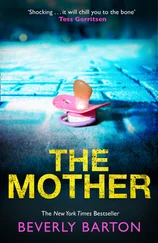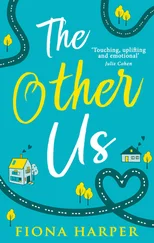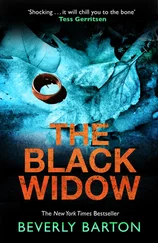Two frustrating hours later, Glen Taylor was being swabbed and scraped before being taken to a cell, while the police checked his story. For a moment, when he realized he was not going home, he looked young and lost as the custody sergeant asked him to empty his pockets and take off his belt.
“Will you phone my wife, Jean, please?” he asked his lawyer, his voice cracking.
In the bleached emptiness of the police cell, he sank onto a discolored plastic bench along one wall and closed his eyes.
The custody sergeant squinted through the eyehole in the door. “Looks calm enough,” he told his colleague. “But let’s keep a close eye on him. Quiet types make me nervous.”
SIXTEEN
The Widow
THURSDAY, JUNE 10, 2010
I used to love Sunday lunch. Always roast chicken and all the trimmings. It used to feel like a family thing and, when we were newlyweds, we had our mums and dads over to share it with us. Sitting around the table in the kitchen, they’d half listen to the end of Desert Island Discs and read the Sunday papers as I put the potatoes in the oven to roast and poured us cups of tea.
It was lovely being part of this grown-up world where we could invite our parents for lunch. Some people say they felt it when they started their first job or moved into their first home, but those Sundays were when I felt like a real adult.
We loved our house. We’d painted the sitting room magnolia—Glen said it was “classy”—and we bought a green sofa and armchairs on credit. We must’ve paid hundreds of pounds for it in the end, but it looked just right, so Glen had to have it. It took longer to save up for a new kitchen, but we managed in the end and picked one with white doors. We walked around the showroom for ages, holding hands, like the other couples. I liked the pine cupboards, but Glen wanted something “clean.” So we went for white. Looked a bit like an operating theater when we first put it together, to be honest, but we bought red handles, snazzy jars and things to liven it up. I loved my kitchen—“my department,” as Glen called it. He never did any cooking. “I’d only make a mess,” he’d say, and we’d laugh about it. So I did the cooking.
Glen would set the table around them, play fighting with my dad to move his elbows and teasing his mum about reading the horoscopes. “Any tall, dark strangers this week, Mum?”
His dad, George, didn’t say much, but he came. Football was the only interest they shared, really. Only they couldn’t even agree on that. Glen liked to watch football on the telly. His dad went to the match. Glen didn’t like all those bodies squashed together, all that sweat and swearing. “I’m more of a purist, Jean. I like the sport, not the social life.” His dad said he was a “poofter.”
George didn’t understand Glen at all, and we thought he probably felt threatened by his education. Glen did well at school—always near the top of the class—and he worked hard because he was determined not to end up a cabbie, like his dad. Funny that he did end up in the same profession. I said it as a joke once, but Glen told me there was a world of difference between being a cabbie and being a driver.
I didn’t know what I wanted to be. Maybe one of the pretty girls who didn’t have to try. I didn’t try, anyway, and Glen always said I was pretty, so it sort of came true. I did make an effort for him but not too much makeup. He didn’t like it—“Too tarty, Jeanie.”
At our Sunday get-togethers, Mary used to bring an apple crumble and my mum brought a bunch of flowers. She wasn’t a cook. She preferred tinned veg to real ones. Funny really, but Dad said it was what she’d been brought up with and he’d got used to it.
When I did domestic science at school, I used to bring home the dishes we cooked. They weren’t bad, but if we’d done something “foreign,” like lasagna or chili con carne, Mum pushed it around her plate a bit.
So roast chicken suited everyone, and I always did tinned peas for her.
There was lots of laughing. I remember that. About nothing, really. Funny things that had happened at the salon or the bank, gossip about the neighbors and EastEnders . The kitchen would get all steamy when I was draining the carrots and cabbage, and Glen would draw with his finger on the windows. Sometimes he drew hearts, and Mary would smile at me. She was desperate for grandchildren and would whisper to me when we did the washing up, asking if there was any news. At first I said, “Plenty of time for babies, Mary. We’ve only just got married.” Later, I pretended not to hear as I stacked the dishwasher, and she stopped asking. I think she guessed it was Glen’s problem. We were closer than me and my mum at the time, and she knew I’d tell her if it was me. I never told her the reason, but I suppose she guessed, and Glen blamed me for telling her. “No one’s business but ours, Jeanie.”
The Sunday lunches started to tail off because Glen and his dad couldn’t bear to be in the same room.
His dad found out about our fertility problem and made a joke of it the Christmas after we were told by the specialist.
“Look at this,” he said, picking up an orange out of the fruit bowl. “It’s like you, Glen, seedless.”
George was a nasty man, but even he knew he’d gone too far. No one said anything. The silence was awful. No one knew what to say, so we all looked at the telly and passed the Christmas chocolates. Pretended it hadn’t happened. Glen was white as a sheet. He just sat there, and I couldn’t bring myself to touch him. Seedless.
In the car home, he said he’d never forgive his dad. And he didn’t. We didn’t refer to it again.
I wanted a baby so badly, but he wouldn’t talk about “our problem,” as I had to call it, or about adoption. He disappeared inside himself, and I kept myself to myself. Two strangers in the house for a while.
At the Sunday lunches, Glen stopped drawing in the steam; he opened the back door to let it out. And everyone began leaving earlier and earlier, and then we all started making excuses. “We’re so busy this weekend, Mary. Do you mind if we leave it until next Sunday?” Then “next month,” and gradually family lunches were just on birthdays and at Christmas.
If we’d had kids, our parents would have been grandmas and granddads. It would’ve been different. But the pressure to perform for our parents became too much. There were no distractions. Just us. And the scrutiny of our lives was too intense for Glen. “They want to interfere in everything,” he said after one lunch when Mary and my mum had decided where would be best for me to buy a new oven. “They only want to help, love,” I’d said lightly, but I could see the dark clouds gathering over him. He’d be quiet and busy with his own thoughts for the rest of the day.
He hadn’t always been like that. But he started to take offense at everything. Tiny things—something the man at the corner shop said about Arsenal losing or a kid on the bus disrespecting him—would upset him for days. I’d try to laugh him out of it, but I got worn down by the effort, so I stopped and let him work it out for himself.
I began to wonder if he was looking for reasons to be upset. The people he’d always liked working with at the bank began to annoy him and he’d come home, moaning about them. I knew he was working himself up to something, a row probably, and I tried to talk him out of his moods. There was a time I might’ve been able to—when we were younger—but things were changing.
One of my ladies at the salon said all marriages “settle down after the ‘truly, madly, deeply’ bit.” But was this settling down? Was this it?
I suppose it was then that he started going upstairs to his computer more. Closing himself off from me. Choosing his nonsense over me.
Читать дальше












